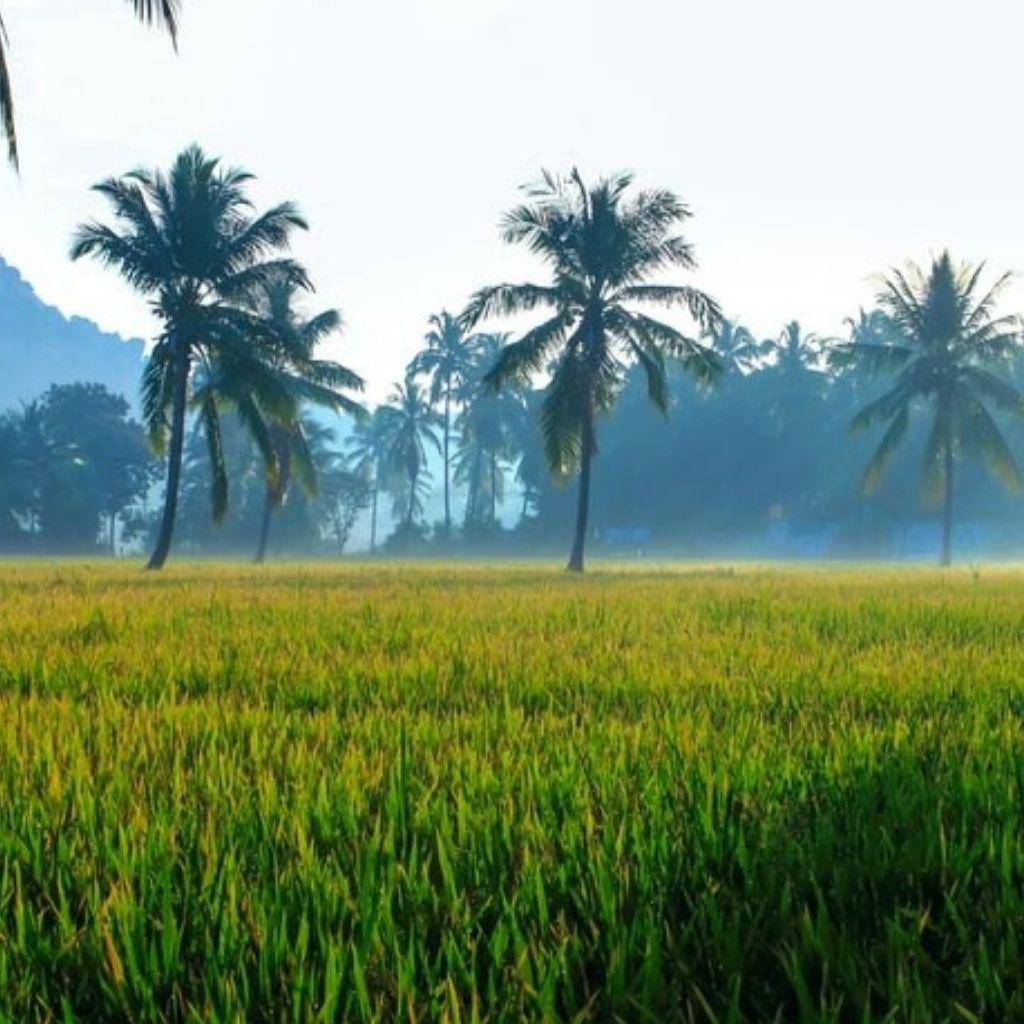There is no doubt that in today’s context, the uncontrolled use of agrochemicals is endangering the health of Earth’s soil, water, flora, fauna, air as well as human life. The droplets of these agrochemicals are increasing within the atmosphere causing damage to the respiratory system of all ecosystems. This could be a proximate cause for the spread of non-communicable diseases, especially within the human community. A 2020 report compiled by WHO states that approximately 80 patients are reported with cancer daily in Sri Lanka. Most often consumer products containing harmful toxins are marketed using creative wording to manipulate target audiences. At present the earth is in danger and its future health will only improve if we do not make it our responsibility to heal and preserve it for the existence of all beings.
Let us correct the damage caused by farming.
Paddy and chena cultivation is one of the most popular farming methods used extensively in Sri Lanka since time immemorial.
As a nation that has incorporated paddy cultivation in its food, communal bonds and in its art forms, Sri Lanka cannot stay complacent with what is happening in the country at present. Especially when we had inherited a harvesting method that is high in both yield and quality at low costs. On this premise, I would like to share with you the 6 years of experience I have gained as an organic farmer.
Paddy Cultivation
The nature of the soil is an important factor to consider when cultivating any crop. Not only should it be fertile but the solutions related to crop nutrition and disease control should be found in the surrounding environment. Special attention should be paid to soil conservation, good water management and the growth of beneficial organisms. Mechanical solutions can be used for the control of weeds while organisms can be used to control any plant diseases. Further, I have also found through my own personal experience that there are numerous benefits with the use of traditional Sri Lankan seedlings. These benefits include a scattered and extensive root system, growth of bushes and the yield and height increase in the harvest.
Fertilizing the soil first.
- Refrain from setting fire to the dried up paddy plants left after harvesting. This prevents soil erosion, minimizes soil drying and creates an environment suitable for the growth of microorganisms.
- Add leaves of Mee trees (Mousey me), Karanda (Indian Beech),Giniseeriya (Gliricidia), Nika, Wild Sunflower to the field before ploughing as it balances the soil’s salt content and diseases.
- Cultivate legumes in advance.
- Ensure external water sources do not flow into the field.
- At the first stage, ploughing should be done at low water levels, after which the soil should be fertilized by spreading straw, manure, fresh leaves, and Gliricidia leaves. At this stage paddy husks and coal are used to balance the salt content of the soil.
- The soil is ready for seed dispersion. This rejuvenated and healthy soil is now ready to nurture and protect the seedlings to promote growth.
However, the addition of toxic chemicals at an extra cost breaks down the above mentioned natural process and weakens the earth which results in a struggling ecosystem, low quality yields and unhealthy soil.
There are 3 main stages in paddy.
The incubation period of 0/35 days
The reproductive period of 35/70 days
The ripening period of 70/90 days
A crop that grows well in healthy soil can very well be infested with pests at any given time. The solution lies in the form of animals who repel harmful pests. The use of agrochemicals causes an imbalance that would not be apparent in nature based solutions. When the crop is ready to be harvested, the paddy flakes open in the morning and almost as if to receive the blessings of nature. When farmers spray chemicals during this crucial time the toxins remain trapped in the paddy, diminishing the quality of the harvest.
Further, the use of chemicals kills the quality of the soil, biodiversity, its growth rate and would even result in a diminishing yield. This is not the case in organic farming as it is a nature based, eco-friendly method.It is vital to reflect upon our own consumer habits. Have we knowingly or unknowingly fed toxins to our loved ones for years? Let us think, change and find our solutions within nature. For, nothing is above the laws of nature.
Author: Charuka Udayanga

